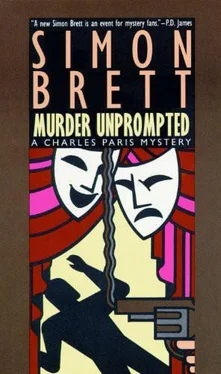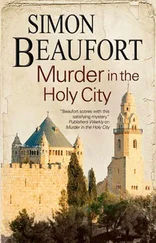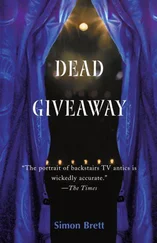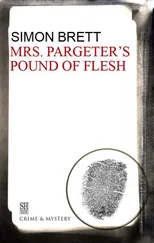Simon Brett - Murder Unprompted
Здесь есть возможность читать онлайн «Simon Brett - Murder Unprompted» весь текст электронной книги совершенно бесплатно (целиком полную версию без сокращений). В некоторых случаях можно слушать аудио, скачать через торрент в формате fb2 и присутствует краткое содержание. Жанр: Криминальный детектив, на английском языке. Описание произведения, (предисловие) а так же отзывы посетителей доступны на портале библиотеки ЛибКат.
- Название:Murder Unprompted
- Автор:
- Жанр:
- Год:неизвестен
- ISBN:нет данных
- Рейтинг книги:5 / 5. Голосов: 1
-
Избранное:Добавить в избранное
- Отзывы:
-
Ваша оценка:
- 100
- 1
- 2
- 3
- 4
- 5
Murder Unprompted: краткое содержание, описание и аннотация
Предлагаем к чтению аннотацию, описание, краткое содержание или предисловие (зависит от того, что написал сам автор книги «Murder Unprompted»). Если вы не нашли необходимую информацию о книге — напишите в комментариях, мы постараемся отыскать её.
Murder Unprompted — читать онлайн бесплатно полную книгу (весь текст) целиком
Ниже представлен текст книги, разбитый по страницам. Система сохранения места последней прочитанной страницы, позволяет с удобством читать онлайн бесплатно книгу «Murder Unprompted», без необходимости каждый раз заново искать на чём Вы остановились. Поставьте закладку, и сможете в любой момент перейти на страницу, на которой закончили чтение.
Интервал:
Закладка:
It was a strange day, most of which Charles walked through in a dream. What remained of the morning was to be spent acclimatising himself to the deaf-aid receiver and learning how to pace himself with the A.S.M. who was going to feed the lines.
That was agony. Charles kept remembering what Micky Banks had gone through at the same stage, and often, like his predecessor, was ready to throw in the towel and say it was impossible. His mind wasn’t up to speaking one line while listening to another, and at the same time trying to remember the next move. His familiarity with his own original part didn’t help either. In the scenes where the father talked to the character now played by George Birkitt, he kept hearing the father’s line in his ear, mistaking it for his cue, and coming in with George’s line. There seemed no prospect of his ever getting the technique.
He bashed away at it with the A.S.M. solidly from eleven-fifteen, when he arrived at the theatre, until half past two, without any break for lunch or the drink he desperately craved. The rest of the cast were called for three to do a complete rehearsal of all the scenes he was in.
And, suddenly, just as had happened to Michael Banks, at the eleventh hour the rhythm started to come. Partly it was familiarity with the lines after three hours of going through them, but also it was a kind of relaxation that came with the acceptance of disaster. This is never going to work, Charles was thinking, so what is the point of worrying about it? With that thought came relief, and with relief sufficient detachment for him to split his mind, to let one part concentrate on hearing the lines, and the other on performing. The only sensation he could equate it with was that remoteness that comes during a long run, when the lines of the play get delivered every night, but the actor’s mind is miles away, thinking about anything but the performance he is giving.
The rest of the company was wonderfully supportive. They all looked shattered after the shock and lack of sleep of the night before, but they all worked for him, recognising his need as only professional actors can. The only one who was less than whole-hearted in his support was George Birkitt, whose mind seemed to be on something else (no doubt whether his billing would be affected by Michael Banks’s demise, and whether it was really appropriate for him to stay in the show and play a smaller part than Charles Paris).
But all the others demonstrated the unshakeable freemasonry of actors in a crisis. They were all very sharp and attentive, prepared to go back over scenes or lines as often as was required, patient when Charles lost the line, encouraging when he got a flow of dialogue working.
Through his haze, Charles realised that it wasn’t just the crisis that made them so deferential; it was the part he was now playing, too. Willy-nilly, he was now the star of The Hooded Owl, and the rest of the cast were giving him a taste of the treatment afforded to stars. It was something Charles Paris had never before experienced, and it felt very strange.
And so, like a grotesque dream, the hours passed. The ‘half’ came. Charles made himself up for the new role, and dressed in the new costume. Fortunately, the latter was really new. Apart from the fact that Michael Banks had been bigger than he was, the dead man’s clothes were still being examined by the police. Which was a relief to his replacement.
As he was preparing, all the company came in with good wishes and pledges of support. Paul Lexington exhorted him to do his best. The house was full, he said. As he thought, all the publicity had paid off.
The young Producer looked buoyant. Charles wasn’t too distracted to have the thought that Michael Banks’s replacement must have considerably reduced the running costs of the production.
Then came the reassuringly calm voice of the Stage Manager over the loudspeaker. ‘Beginners, Act One, please. All the best, everyone.’
Charles rose from his seat and walked out of the dressing room. As he closed the door, he noticed for the first time that there was a star on it. The dream continued during the performance, but its nightmare quality receded. Once the sheer terror subsided and Charles realised both that he wasn’t going to pass out and that he could manage the lines, he even began to enjoy it. He had forgotten the pleasure of playing a major part in a good play in the West End. (Well, to be honest with himself, he had to admit that ‘forgotten’ wasn’t the right word. But he did enjoy the unfamiliar experience.)
The performance was not without mishap. He did lose the lines on more than one occasion and threshed around helplessly through pauses that seemed eternal, until the A.S.M.’s quiet voice in his ear managed to get him back on to the right track. But these moments did not seem to lose the play’s tension. The concentration of the cast was so strong that the mood was well maintained.
The audience kept up their concentration too. They all knew what had happened the previous night and, from Wallas Ward’s announcement before the curtain rose, they knew that Charles had stepped in at very short notice. They didn’t know about the device of the hearing-aid, but that was a point in Charles’s favour; it made his feat of getting through the part even more remarkable. As he stood on the stage he felt pouring out from the audience that most British of reflexes: the will for the underdog to win.
He spent the interval just sitting in his dressing room, gathering his strength for the next act. People came in and out, but he didn’t really notice them or their words of encouragement.
In the second act, he felt the power of Malcolm Harris’s writing, and felt his own performance rise to the rhythms of the play.
The scene with Lesley-Jane started. Everyone knew the climax was approaching. Lesley-Jane looked strained and peaky and her performance was once again subdued. The audience was silent, waiting. They seemed to know when the tragedy of the previous night had occurred, and had maybe come to the theatre in such numbers in the vague hope that they might get a repeat showing.
This thought came into Charles’s already overcrowded mind, and he found himself looking off into the wings, whence the fatal shot had come.
He was surprised how little he could see. The brightness of the light on stage made it difficult for him to focus, and a large spot, positioned to give the illusion of daylight from a window of the set, left the recesses of the wings in obscurity. Charles could not even see the A.S.M. who was reading his lines, though he knew the youth would be keeping him in view to watch for signs of difficulty. To be seen from the stage on the O.P. side, a person would have to stand very close to the edge of the set.
Lesley-Jane Decker had seen someone or something in the wings the previous night and it had made her scream. He felt sure of that. It wasn’t the sight of Michael Banks falling that had set her off. She had looked off-stage and then screamed.
Charles decided he must talk to her when the opportunity arose.
But the thoughts of detection were fatal to his concentration. He lost the line again and, though he tried to disguise the lapse with a dramatic move, he feared he had broken the tension of the scene.
But it was a good scene and, by the time he got to the Hooded Owl speech, he was back on course. He felt very emotional, caught up in his own acting and awareness of the speech’s significance from the night before. The emotion and power built through the lines.
As he turned to face the glass case, he felt every eye in the theatre on him.
‘. . This stuffed bird has always been in the room. Imagine it had perception, a memory to retain our follies. Oh God, the weakness that these walls have witnessed! And this bird has lived through it all, has seen it all, impassively, in silence.’
Читать дальшеИнтервал:
Закладка:
Похожие книги на «Murder Unprompted»
Представляем Вашему вниманию похожие книги на «Murder Unprompted» списком для выбора. Мы отобрали схожую по названию и смыслу литературу в надежде предоставить читателям больше вариантов отыскать новые, интересные, ещё непрочитанные произведения.
Обсуждение, отзывы о книге «Murder Unprompted» и просто собственные мнения читателей. Оставьте ваши комментарии, напишите, что Вы думаете о произведении, его смысле или главных героях. Укажите что конкретно понравилось, а что нет, и почему Вы так считаете.












